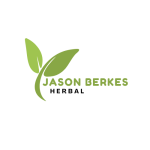In a world increasingly dominated by fast-paced lifestyles and synthetic solutions, the allure of holistic health practices continues to grow. Among these, herbalism—the ancient art of using plants for medicinal purposes—has experienced a renaissance. With roots in virtually every culture and tradition, herbalism offers not only remedies but also a deeper connection to nature and ourselves. Let’s explore how this time-honored practice can empower us to live healthier, more balanced lives.
The Ancient Roots of Herbalism
Herbalism isn’t just a modern trend; it’s a practice that dates back thousands of years. From the Ayurvedic traditions of India and Traditional Chinese Medicine (TCM) to Native American healing practices and European herbal lore, every civilization has tapped into the healing power of plants.
For example:
- Ayurveda emphasizes balancing the body’s doshas with herbs like turmeric, ashwagandha, and neem.
- TCM employs a sophisticated system of herbs, such as ginseng and astragalus, to restore Qi (vital energy).
- Western herbalism highlights plants like echinacea and chamomile for their immune-boosting and calming properties.
These traditions remind us that health isn’t just the absence of disease but a dynamic state of physical, emotional, and spiritual well-being.
The Science Behind the Magic
In recent decades, science has begun to validate what herbalists have known for centuries: plants are powerful allies. Modern research has identified active compounds in many herbs that contribute to their healing properties. For instance:
- Curcumin, found in turmeric, is a potent anti-inflammatory and antioxidant.
- Silymarin, from milk thistle, supports liver health and detoxification.
- Flavonoids, present in many herbs, have been shown to reduce oxidative stress and promote cardiovascular health.
Understanding these mechanisms bridges the gap between traditional knowledge and contemporary medicine, providing a robust foundation for integrating herbal remedies into modern healthcare.
The Holistic Approach
Herbalism isn’t just about treating symptoms; it’s about addressing the root causes of imbalance. This holistic approach considers the interconnectedness of body, mind, and spirit.
For example:
- A herbalist might recommend lavender or passionflower not only for insomnia but also to alleviate the underlying stress.
- Adaptogens like rhodiola and holy basil can support the body’s response to chronic stress, improving energy levels and resilience.
This integrative perspective aligns beautifully with modern wellness trends, which emphasize prevention, mindfulness, and self-care.
Empowering Personal Wellness
One of the most empowering aspects of herbalism is its accessibility. With a little knowledge, anyone can begin incorporating herbs into their daily routine to support health and vitality. Here’s how:
- Start Small: Begin with well-known herbs like chamomile for relaxation, peppermint for digestion, or ginger for its anti-inflammatory effects.
- Grow Your Own: Cultivating an herb garden can be a rewarding way to connect with nature and ensure a fresh supply of remedies.
- Learn & Explore: Many resources, from online courses to local workshops, can help deepen your understanding of herbalism.
- Consult Experts: When in doubt, seek guidance from a trained herbalist or naturopath to create a personalized plan.
Sustainability and Ethical Herbalism
As interest in herbalism grows, it’s crucial to practice it sustainably. Overharvesting and habitat destruction threaten many medicinal plants, such as wild ginseng and goldenseal. Here’s how you can help:
- Choose responsibly sourced herbs from reputable suppliers.
- Support cultivation efforts for endangered plants.
- Harvest mindfully if foraging, ensuring the ecosystem remains intact.
By adopting ethical practices, we honor the plants and the planet, ensuring their healing gifts remain available for future generations.
A Holistic Future
The resurgence of herbalism signals a shift toward more conscious and holistic approaches to health. As we embrace the wisdom of the past and blend it with modern insights, we unlock a wealth of potential to live more empowered, harmonious lives.
Incorporating herbalism into your wellness journey doesn’t require an all-or-nothing approach. Start with curiosity, experiment with mindfulness, and allow the natural world to become a trusted ally in your quest for health. By doing so, you’ll not only nurture your body but also cultivate a deeper connection to the vibrant web of life that sustains us all.
Let the journey toward empowered health begin, one herb at a time.


